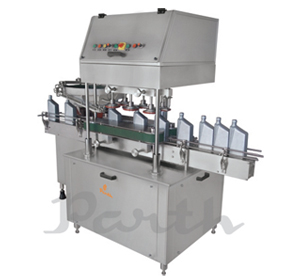Bottle cap sealing machines play a vital role in ensuring the safety, integrity, and longevity of bottled products across various industries. These machines are indispensable for packaging operations, providing tamper-proof seals and preserving product quality. This comprehensive guide explores bottle cap sealing machines, their types, uses, and answers frequently asked questions to help businesses choose the right equipment for their needs.
What is a Bottle Cap Sealing Machine?
A bottle cap sealing machine is specialized equipment designed to securely seal caps onto bottles. These machines are used in industries such as food and beverages, pharmaceuticals, cosmetics, and chemicals, where ensuring airtight and tamper-evident packaging is essential. They handle a wide range of cap types, including screw caps, ROPP caps, corks, and flip-off caps.
Types of Bottle Cap Sealing Machines

- Automatic Bottle Cap Sealing Machines
- Fully automated systems that integrate capping with other packaging processes.
- Suitable for high-speed, large-scale production lines.
- Semi-Automatic Bottle Cap Sealing Machines
- Partially automated and require some manual intervention.
- Ideal for medium-scale production.
- Manual Bottle Cap Sealing Machines
- Operated manually and best suited for small-scale production or startups.
- Cost-effective and portable.
- ROPP Cap Sealing Machines
- Specifically designed for Roll-On Pilfer Proof (ROPP) caps, commonly used in liquor and pharmaceutical bottles.
- Induction Sealing Machines
- Utilize electromagnetic induction to seal aluminum foil on bottle openings.
- Often used for tamper-evident and airtight sealing.
- Snap Cap Sealing Machines
- Designed for snap-fit caps, commonly used for water bottles and beverages.
- Corking Machines
- Specifically for sealing bottles with corks, ideal for wine and spirits.
Applications of Bottle Cap Sealing Machines
- Food and Beverage: Sealing juice, soda, water, and sauce bottles.
- Pharmaceuticals: Ensuring airtight seals on medicine bottles to maintain sterility.
- Cosmetics: Sealing bottles of perfumes, lotions, and oils.
- Chemical Industry: Safely sealing cleaning agents, industrial chemicals, and pesticides.
- Alcohol and Spirits: Sealing liquor bottles with ROPP caps or corks.
Key Features of Bottle Cap Sealing Machines
- Speed and Efficiency: Automated machines can cap hundreds or thousands of bottles per hour.
- Precision: Ensures consistent sealing without damaging the bottles or caps.
- Versatility: Compatible with various bottle sizes, shapes, and cap types.
- Durable Construction: Built from high-quality materials for long-lasting performance.
- Ease of Operation: User-friendly interfaces and controls for efficient use.
- Safety Features: Includes mechanisms like overload protection and emergency stop buttons.
Advantages of Using Bottle Cap Sealing Machines
- Improved Productivity: Automates the capping process, saving time and labor.
- Enhanced Product Safety: Provides tamper-proof seals to ensure product integrity.
- Consistency: Delivers uniform sealing across all bottles.
- Reduced Waste: Minimizes errors and material wastage.
- Scalability: Suitable for small, medium, and large-scale production.
- Compliance: Meets industry standards for packaging and safety.
Common Challenges and How to Overcome Them
- Cap Misalignment:
- Solution: Use machines with precise alignment mechanisms and sensors.
- Seal Leakage:
- Solution: Regularly calibrate the machine and ensure caps are of high quality.
- Machine Downtime:
- Solution: Follow a strict maintenance schedule and keep spare parts readily available.
- Difficulty in Sealing Irregular Bottles:
- Solution: Opt for machines designed to handle unconventional bottle shapes
FAQs About Bottle Cap Sealing Machines
Bottle cap sealing machines can handle:
- Screw caps
- ROPP caps
- Corks
- Flip-off caps
- Snap caps
- Child-resistant caps
Consider the following factors:
- Type of cap and bottle.
- Production volume.
- Level of automation required.
- Budget and available space.
- Industry-specific needs (e.g., tamper-evident seals for pharmaceuticals).
Yes, most machines are designed with adjustable settings to accommodate various bottle sizes and shapes.
Yes, many manufacturers offer customization options, such as adding multi-head capping or integration with existing packaging lines.
- ROPP Machines: Roll threads directly onto the aluminum cap, ensuring tamper-proof seals.
- Screw Cap Machines: Apply pre-threaded caps onto bottles by screwing them into place.
An induction sealing machine uses electromagnetic induction to generate heat, bonding a foil liner to the bottle’s mouth. This creates an airtight and tamper-evident seal.
- Regularly clean the machine to avoid buildup.
- Inspect moving parts for wear and tear.
- Lubricate components as per the manufacturer’s instructions.
- Replace worn-out parts promptly.
Yes, automatic and rotary sealing machines are specifically designed for high-speed production lines.
Yes, manual and some semi-automatic machines are compact and portable, making them suitable for smaller operations.
Key safety features include:
- Emergency stop buttons
- Overload protection
- Safety guards
With proper maintenance, these machines can last 10-15 years or more.
Prices vary depending on the type, capacity, and features. Manual machines may cost a few hundred dollars, while high-end automatic systems can range from several thousand to tens of thousands of dollars.
Yes, most machines are designed to handle a variety of bottle materials, including plastic, glass, and metal.
Industries such as food and beverages, pharmaceuticals, cosmetics, chemicals, and alcohol benefit significantly from bottle cap sealing machines.
Yes, they can integrate with other machinery like filling machines, labeling machines, and conveyors for a complete production line.
Conclusion
Bottle cap sealing machines are crucial for ensuring product safety, enhancing brand image, and meeting regulatory requirements. Whether you run a small business or a large manufacturing unit, choosing the right sealing machine tailored to your production needs can significantly improve efficiency and reduce operational costs. By understanding the types, features, and maintenance requirements of these machines, businesses can make informed decisions to streamline their packaging processes.







